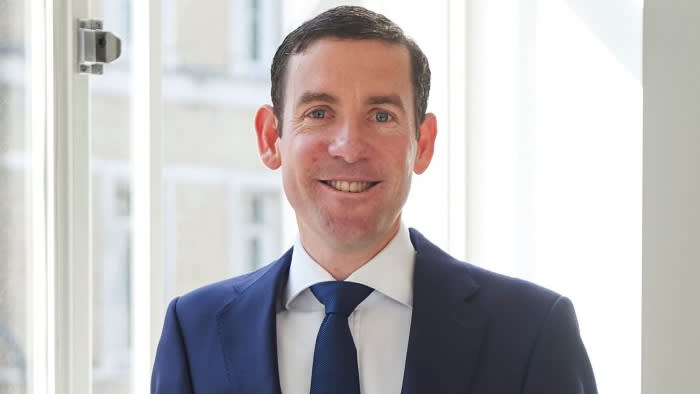Unlock the Editor’s Digest for free
Roula Khalaf, Editor of the FT, selects her favourite stories in this weekly newsletter.
The UK Insolvency Service has asked the High Court to ban Lex Greensill from running companies for up to 15 years after investigating the 2021 collapse of his eponymous supply chain finance company.
The action brought on Thursday was the latest blow to the 47-year-old Australian businessman, whose company was at the heart of the biggest British lobbying scandal in a generation.
The Insolvency Service, an agency sponsored by the business department, said it had launched proceedings to disqualify Greensill from “running or controlling companies” for up to 15 years, the maximum possible ban.
The case was “in respect of his conduct as a director of Greensill Capital (UK) Limited and Greensill Limited”, the agency said. Full details of the claim were not immediately available.
“Mr Greensill rejects this action as wholly without merit and will robustly address it,” his spokesman said. Last week he sued the business department for alleged misuse of private information.
Greensill’s spokesman said last week’s lawsuit was “a result of the Insolvency Service’s conduct during the investigation that led to this action”.
Greensill Capital — whose advisers included former UK prime minister Lord David Cameron, now foreign secretary — was established in 2011 and won backing from high profile investors including SoftBank and US private equity firm General Atlantic. The firm collapsed in March 2021 after it failed to renew its insurance cover.
The company was the focus of intense controversy in the UK after it emerged Cameron had lobbied ministers to allow the company to access government-run Covid-19 debt schemes.
One of Greensill Capital’s major clients was GFG Alliance, a group of metals and commodities companies led by Sanjeev Gupta, which borrowed $5bn from Greensill Capital.
The Serious Fraud Office in May 2021 began investigating GFG Alliance in connection with its financing arrangements with Greensill Capital UK. GFG has denied wrongdoing.
Greensill’s supply chain financing loans to Gupta-linked and other companies were packaged into securities sold to Credit Suisse investors through a group of $10bn supply chain finance funds.
The Financial Times in April 2021 revealed that invoices underpinning the loans raised suspicions of fraud, after a number of companies listed as debtors in Credit Suisse’s investment funds said they had never traded with Gupta’s companies. Gupta at the time told the FT that the invoices related to “prospective” transactions.
The collapse of Greensill spawned numerous legal proceedings, including a criminal investigation in Germany into the management of the firm’s German banking subsidiary Greensill Bank for suspected balance sheet manipulation.
In Switzerland, Lex Greensill was named as a suspect last year alongside four former Credit Suisse bankers in a case that centred on mis-selling allegations in relation to the collapse of the $10bn Greensill Capital-linked investments funds at the Swiss bank. His lawyer declined to comment at the time, citing an instruction from the Swiss prosecutor not to discuss the investigation.
In a letter to an MP in November last year, the UK Financial Conduct Authority’s head of enforcement said that a number of allegations had been made about the circumstances of Greensill Capital’s failure, with some being “potentially criminal in nature”.
The son of an Australian melon farmer, Greensill arrived in the UK in 2001, and worked at investment banks Morgan Stanley and Citigroup before establishing Greensill Capital a decade later. He was awarded a CBE in 2017 for “services to the economy”.

Robert Johnson is a UK-based business writer specializing in finance and entrepreneurship. With an eye for market trends and a keen interest in the corporate world, he offers readers valuable insights into business developments.








